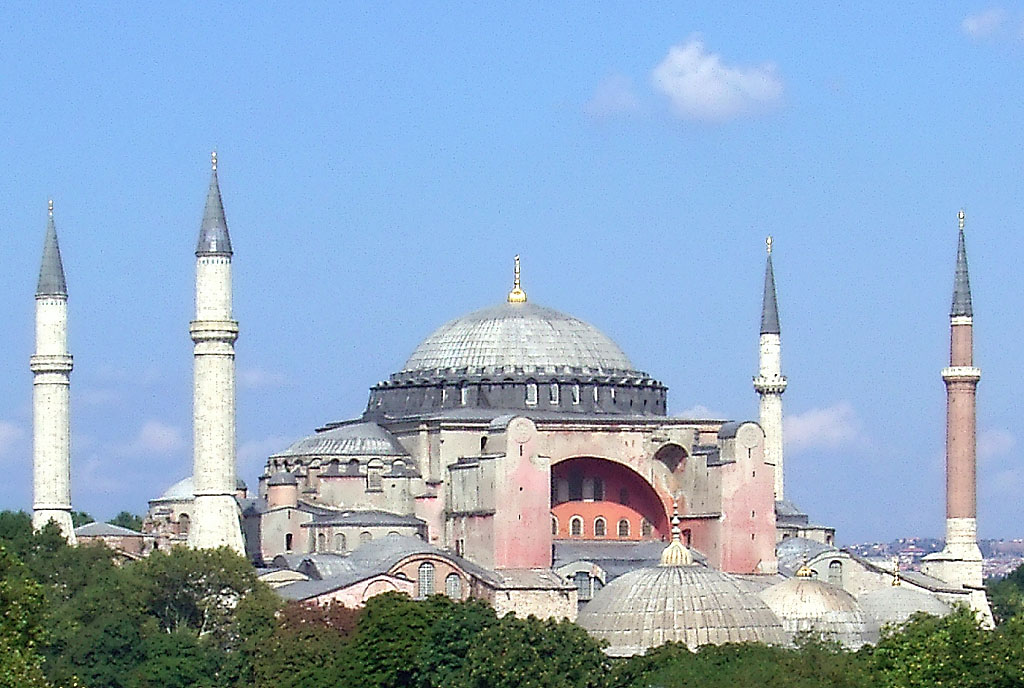
1812 - Jean Auguste Dominque Ingres
This painting depicts Romulus in a victory over a collection of Rome's neighbors who had attempted to unite against the early kingdom.
A sculpture of Brennus, a Gaulish chieftain, who in 387 BCE sacked Rome and destroyed nearly all written historical evidence of Rome's existence to that date. It is at this point in Rome's timeline that it's stories can increasingly rely more on written accounts and less on myth and conjecture. As the story goes, after the Romans agreed to pay the Gauls 1000 pounds of gold to avoid being completely destroyed, they discovered the scales had been tampered to favor of the Gauls. Brennus responded to the complaints of the Romans by throwing his sword onto the scales, thus adding even more gold to the Romans debt. "vae victus", he said to them. (Woe to the conquered)
Hagia Sophia - Istanbul, Turkey
This was constructed between 532 and 537 AD during the reign of the Emporer Justinian. It served as the center of the Eastern Orthodox Church for nearly 1000 years, before it was converted to a mosque following the fall of Constantinople to the Ottoman Turks in 1453 AD. It was after this that the minarets were added. In 1935, the secular government of Turkey designated the site as a museum.

